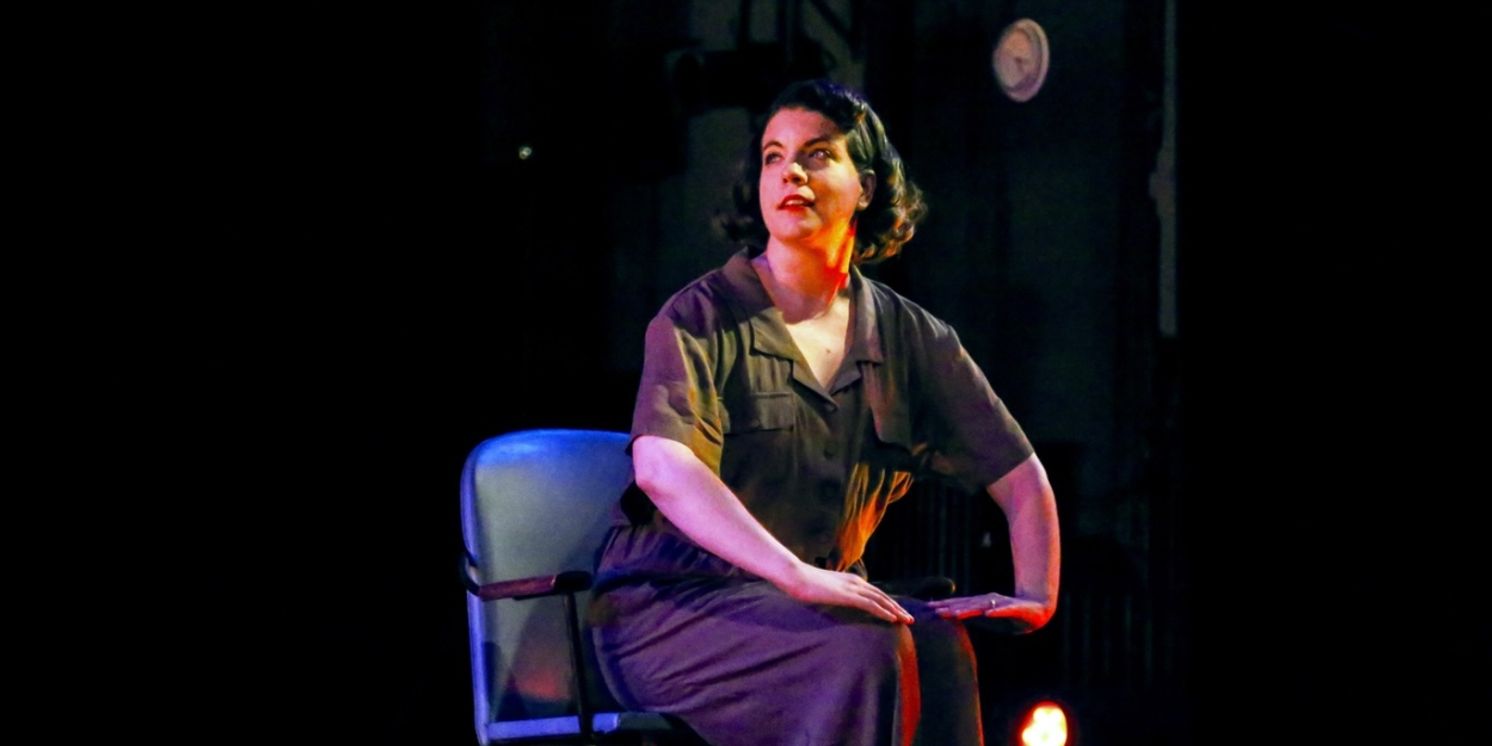LADIES AT A GAY BAR, 1938-1969 Comes to Frigid NYC
Performances are June 24 at 9:00 PM & June 29 at 5:00 PM.

A 1990’s teen lesbian explores history and reckons with the power of femininity in this 60 minute solo dance/theater performance. Writer and performer Maggie Cee draws on oral history interviews from The Buffalo Women’s Oral History Project to create fictional, history-based monologues that illuminate the feminine women whose stories are too often forgotten, but whose strength and determination made the gay girls’ bars come alive. This history is contrasted with Maggie’s raw, heartfelt teenage musings on gender, dating, and desire.
“Ladies at a Gay Girls’ Bar, 1938-1969” is a dynamic, touching solo dance and theater performance show that brings to life a lesser-known part of LGBTQ history, focusing on working-class lesbians who created communities in cities across the US well before what is considered the modern LGBTQ civil rights movement.
Maggie says “I was a little girl who loved books, ballet, tutus and sparkles. When I came out as a lesbian at age 13, I had a lot to grapple with, including late 1990’s homophobia, the movement for civil unions (this was before we said “marriage”), and my own femininity. My teenage character in the show turns to books for answers, and learns about an important piece of LGBTQ history that shapes her identity for years to come.”
“Ladies at a Gay Girl’s Bar, 1938-1969” was a "major highlight" of the Hartford (Connecticut, USA) Fringe Festival according to critic Christopher Arnott, who said: “Ladies at a Gay Girls’ Bar, 1938-1969 sweetly explored the femme/butch dichotomy in lesbian bars over half a century ago. Cee is a graceful, down-to-earth performer who’s passionate about her subject and tells it through dance, pre-recorded voices, oral histories, fictional characters and well-chosen music."
Maggie Cee is a dancer, educator and writer. She is the founder of The Femme Show, a variety show exploring queer femininity that has been seen in Boston and throughout the northeast since 2007. Her solo show “Ladies at a Gay Girls’ Bar, 1938-1969” debuted at the Providence and Hartford Fringe festivals in 2019, and made a post-COVID comeback as an Audience Choice pick of the week at the Philadelphia Fringe Festival in 2022. Recent performances include Brighton (UK) Fringe Festival; Keene (NH) Pride; Women’s Week in Provincetown, MA; and the Dance Complex in Cambridge, MA. “Ladies at a Gay Girls’ Bar, 1938-1969” has been featured in The Keene Sentinel, Philadelphia Magazine, The Boston Globe and Edge Media. Maggie is a co-founder with J. Michael Winward of “Dancing Queerly,” a Boston based dance festival for the LGBTQIA+ community. Other appearances include Cabaret Wotever (London), We Create Festival, (Boston), MondoHomo (Atlanta), the HOT Festival at Dixon Place (NYC), the 2008 and 2012 Femme Conferences, and the Stonewall Inn (NYC). Maggie is the 2011 recipient of the History Project’s Lavender Rhino Award for an emerging LGBT history maker. She was featured in the Advocate magazine’s 2006 “Future Gay Rights Leaders.” Grants and residencies include Creator-in-Residence at Earthdance, and a New England Dance Fund Grant.
Founded in 2014, Queerly is FRIGID New York’s annual celebration of LGBTQA+ artists. Queerly strives for diversity on and off stage, seeking out queer teams and artists of all kinds as well as a wide range of shows and performances. Our goal is to provide a space for queer artists who’ve rarely or never seen their identities portrayed on stage to be able to represent themselves and tell their stories their way, as well as to provide a space for queer celebration, pride, and strength.
FRIGID New York’s mission is to provide both emerging and established artists the opportunity to create and produce original work of varied content, form, and style, and to amplify their diverse voices. We do this by presenting an array of monthly programming, mainstage productions, an artist residency, and eight annual theater festivals that create an environment of collaboration, resourcefulness, and innovation. Founded in 1998, the aim was and is to form a structure, allowing multiple artists to focus on creating and staging new work and providing affordable rental space to scores of independent artists. Now in our third decade we have produced a massive quantity of stimulating downtown theater. www.frigid.nyc
Videos

